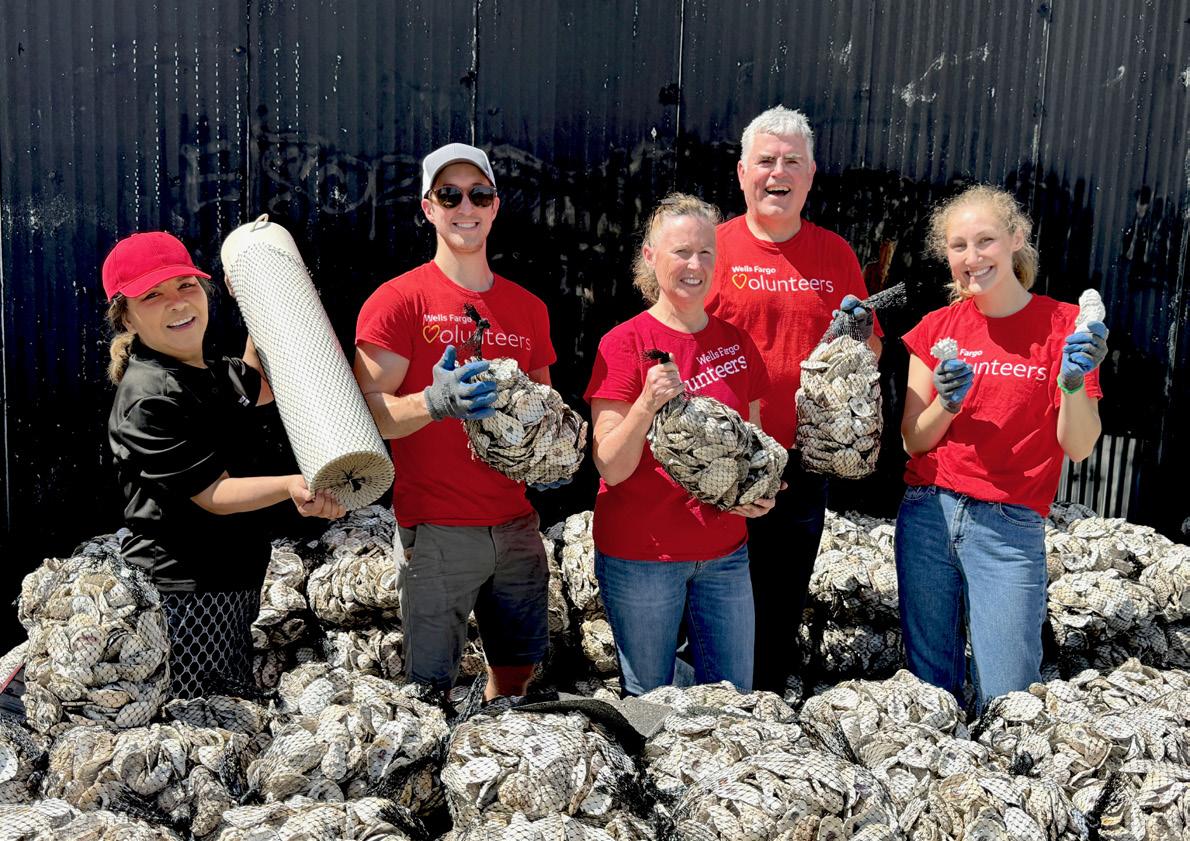
4 minute read
FROM THE FIELD
Above: Wells Fargo volunteers show off their shell bagging skills during a bagging event in May.
From nurturing tiny wild plants to engaging with our nation’s lawmakers about environmental issues in the Delaware River Watershed, PDE staff have been on the move.
WAY TO GO, WELLS FARGO
In May, volunteers from Wells Fargo visited our Wilmington oyster shell recycling area to bag oyster shells. In just a few hours, the group created 322 bags of shells, which collectively weigh around 4,500 pounds — about the same as a midsized SUV. These bags will be used in restoration projects across the Delaware Estuary. Watch video highlights.
Sound Check
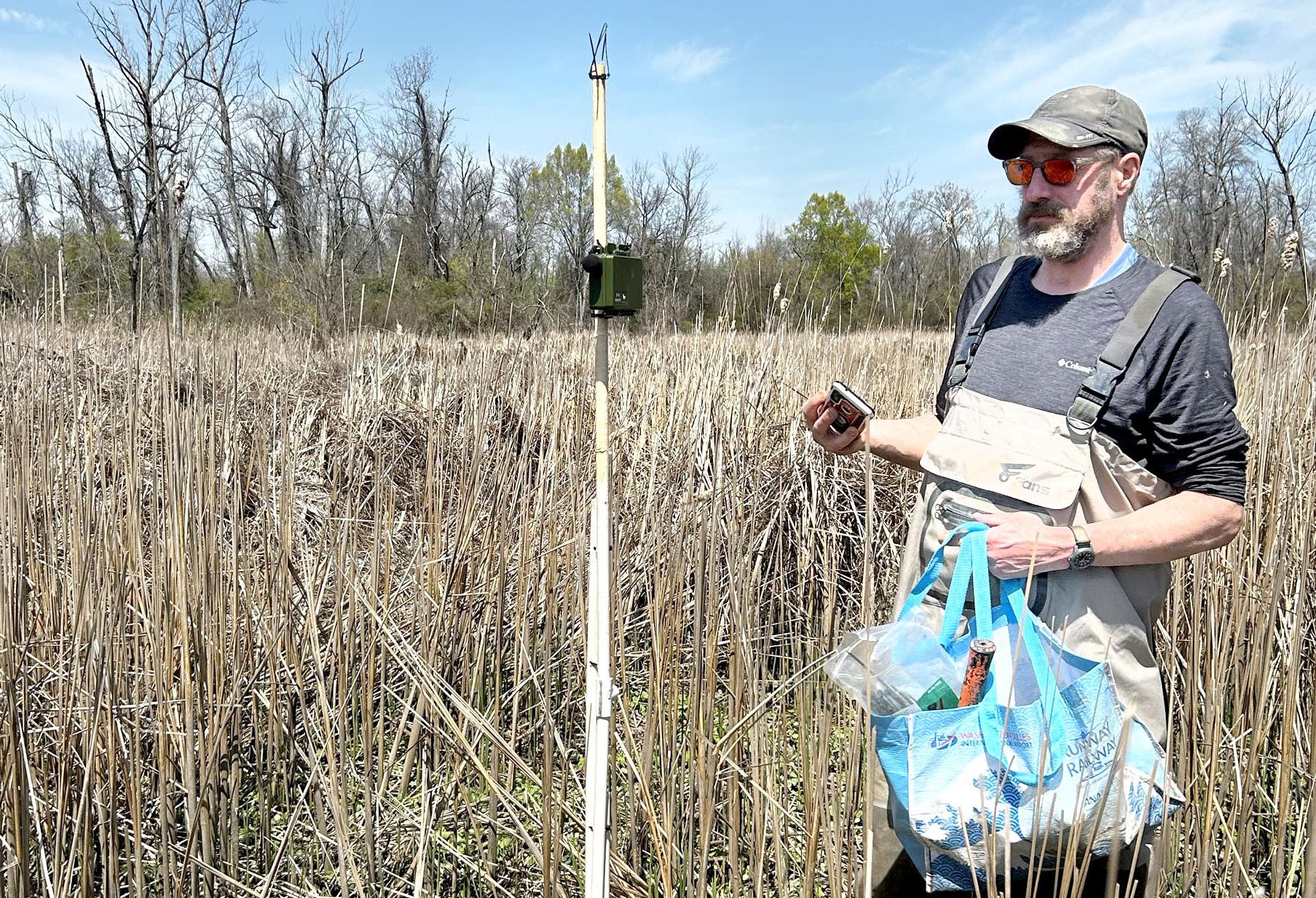
PDE's science team is continuing a project created to gain a greater understanding of tidal wetland conditions using sound. These data will tell us how noisy or quiet these wetlands are, and if there's a possibility that human sounds influence the way animals in these systems function.
Making Their Mark For Clean Waterways
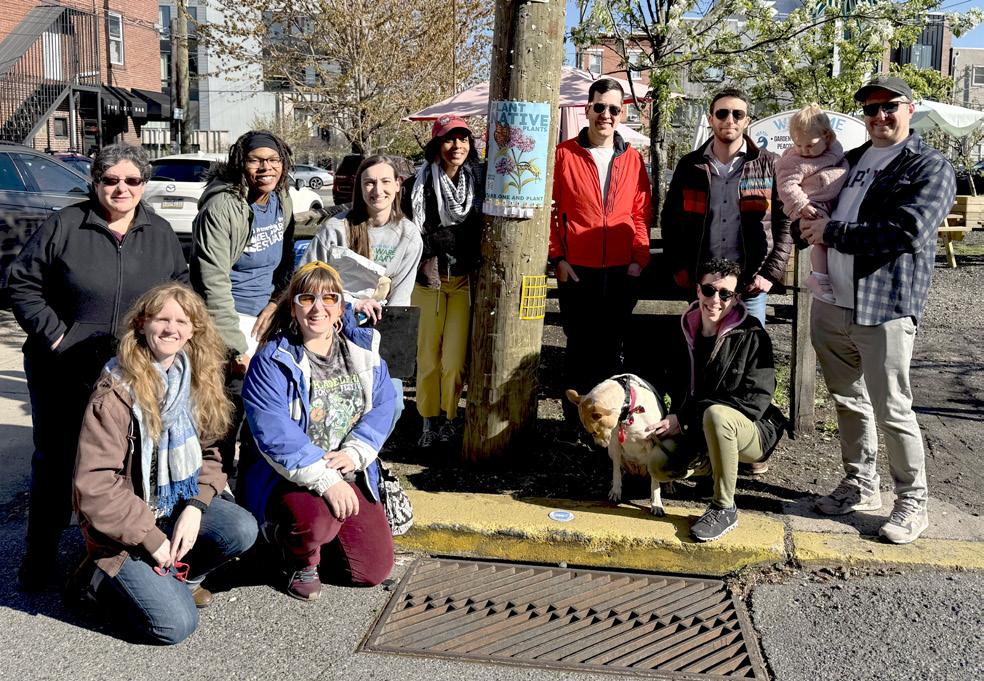
In April, PDE teamed up with online publication Green Philly and volunteers to mark 90 storm drains as part of the Philadelphia Water Department's storm drain marking program in the East Kensington and Olde Richmond neighborhoods. Marked storm drains remind residents that clean waterways start with litter-free streets and that only rain should go down the drain.
On The Tube
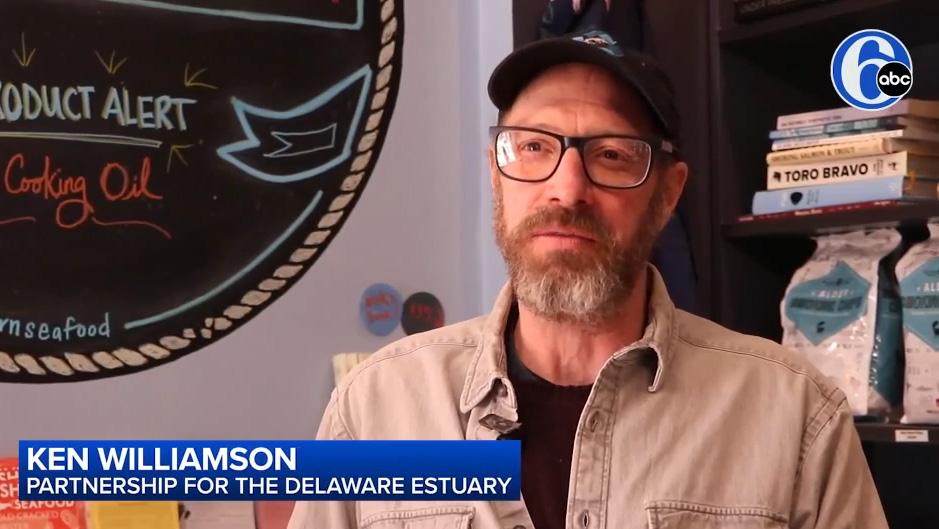
In April, PDE’s shell recycling program was a featured story on 6 ABC in Philadelphia. Reporter Matteo Iadonisi spoke to PDE Restoration Specialist Ken Williamson who regularly picks up recycled oyster shells from restaurants around Philadelphia and Wilmington who participate in the shell recycling program. Iadonisi also spoke with Fishtown Seafood Owner Bryan Szeliga, one of PDE’s partner restaurants in the recycling program, about the importance of getting the shells back to nature to reinforce shorelines and create habitat. Watch the full story.
Going Wild For Habitat
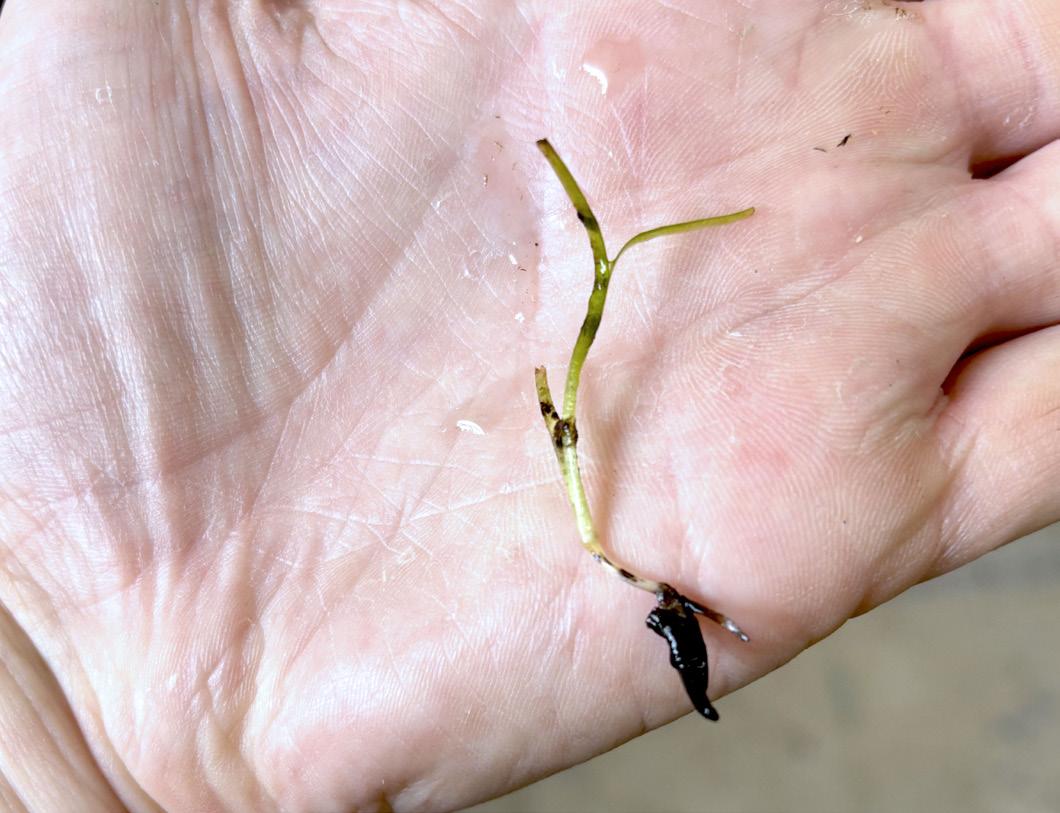
A tiny strand of wild celery (Vallisneria americana) and its kin are well on their way toward becoming stock for submerged aquatic vegetation, or SAV (underwater plants). SAV plays a big role in water quality improvement and as an underwater food source for fish and other species. PDE scientists are cultivating wild celery as part of a pilot program to enhance native SAV communities in the Delaware River.
Environmentally Speaking

In March, PDE Executive Director Kathy Klein and Programs director Martha Maxwell-Doyle traveled to Washington, D.C. to attend National Estuary Program meetings and to visit congressional delegates in PDE’s focus area — Delaware, New Jersey, and Pennsylvania — to discuss environmental and other issues facing National Estuary Programs. The visit even made Delaware Sen. Lisa Blunt-Rochester's newsletter.
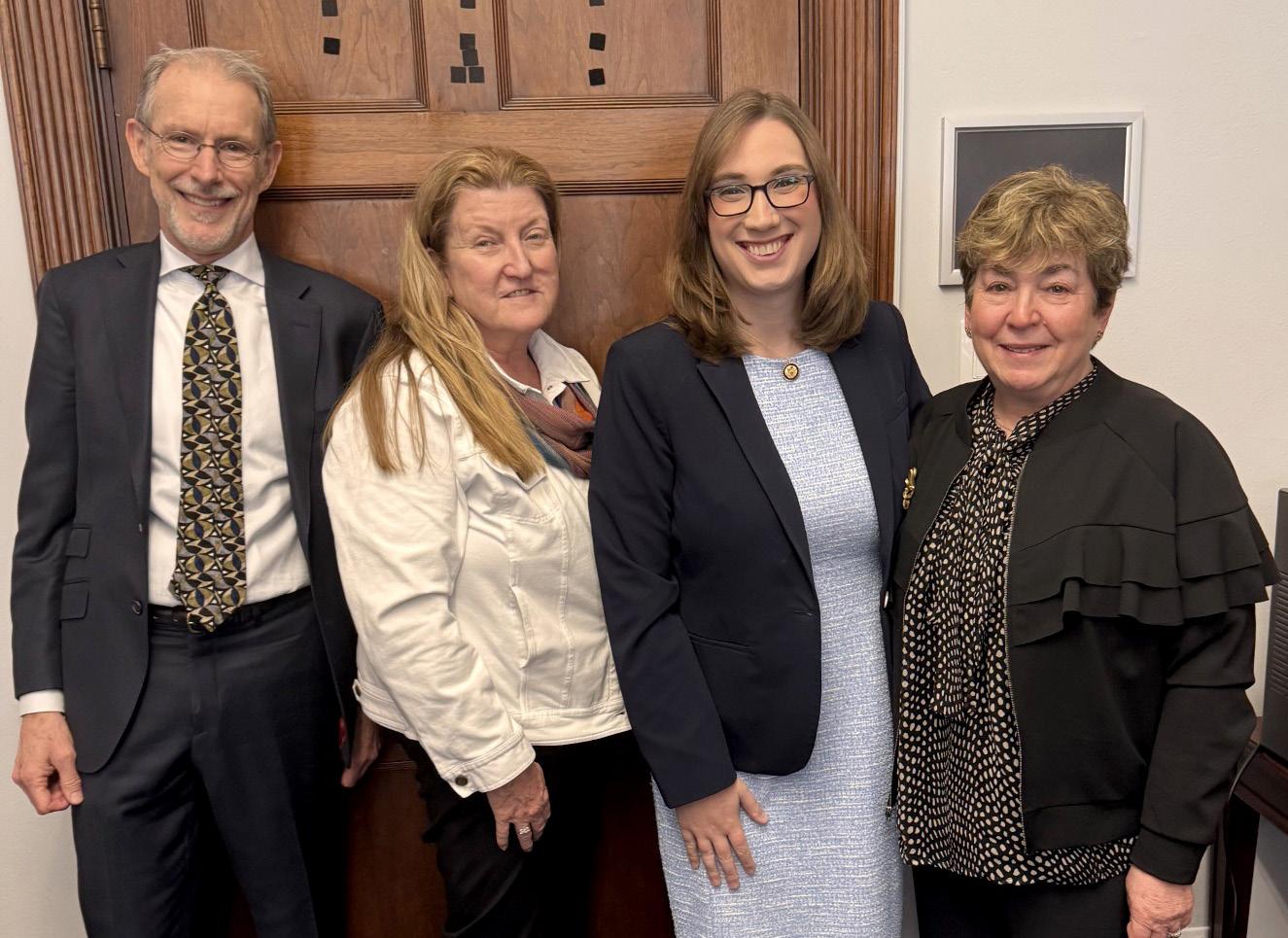
Coffee Talk
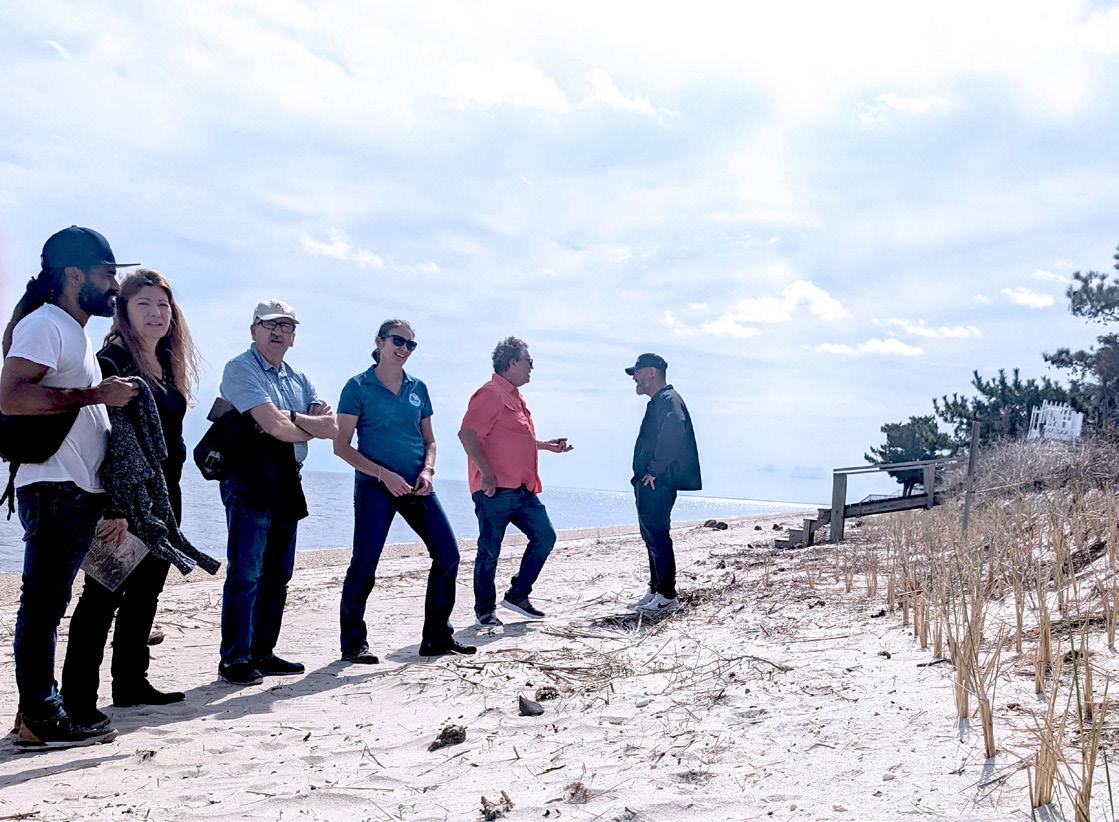
In April, Delaware’s Resilient and Sustainable Communities League (RASCL), headed to Slaughter Beach for its first outdoor coffee hour. Held quarterly, RASCL's coffee hour meetings discuss best practices on planning and building physically sustainable communities in the First State. Just in time for Earth Month, the group headed to this small town by the Delaware Bay to see examples of dune erosion and active dune preservation. Attendees included the mayor and vice mayor, practitioners from the Delaware Department of Natural Resources and Environmental Control and Delaware Sea Grant, project managers from an architectural and design firm, and members of the public.









